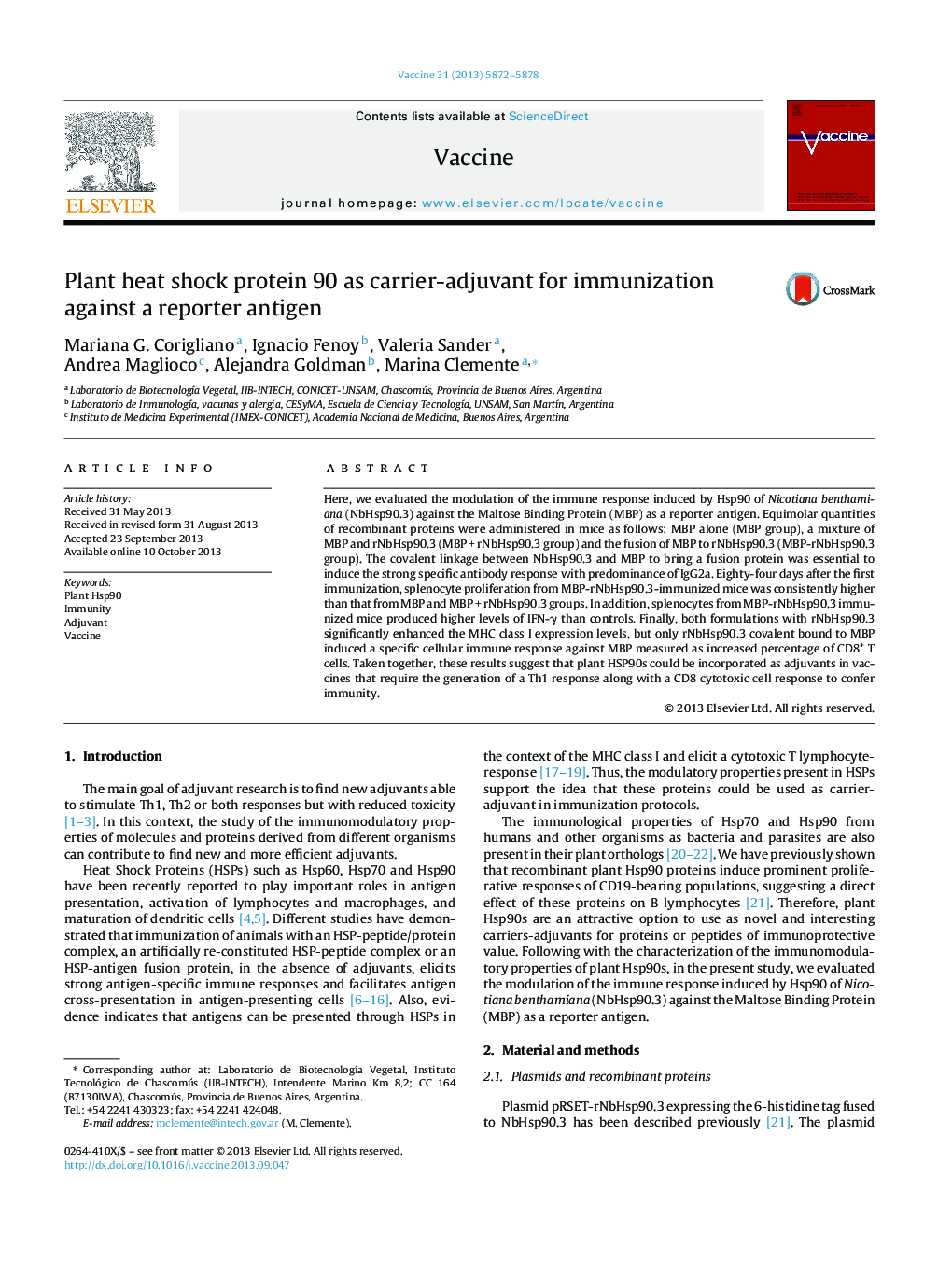| Article ID | Journal | Published Year | Pages | File Type |
|---|---|---|---|---|
| 10967375 | Vaccine | 2013 | 7 Pages |
Abstract
Here, we evaluated the modulation of the immune response induced by Hsp90 of Nicotiana benthamiana (NbHsp90.3) against the Maltose Binding Protein (MBP) as a reporter antigen. Equimolar quantities of recombinant proteins were administered in mice as follows: MBP alone (MBP group), a mixture of MBP and rNbHsp90.3 (MBP + rNbHsp90.3 group) and the fusion of MBP to rNbHsp90.3 (MBP-rNbHsp90.3 group). The covalent linkage between NbHsp90.3 and MBP to bring a fusion protein was essential to induce the strong specific antibody response with predominance of IgG2a. Eighty-four days after the first immunization, splenocyte proliferation from MBP-rNbHsp90.3-immunized mice was consistently higher than that from MBP and MBP + rNbHsp90.3 groups. In addition, splenocytes from MBP-rNbHsp90.3 immunized mice produced higher levels of IFN-γ than controls. Finally, both formulations with rNbHsp90.3 significantly enhanced the MHC class I expression levels, but only rNbHsp90.3 covalent bound to MBP induced a specific cellular immune response against MBP measured as increased percentage of CD8+ T cells. Taken together, these results suggest that plant HSP90s could be incorporated as adjuvants in vaccines that require the generation of a Th1 response along with a CD8 cytotoxic cell response to confer immunity.
Related Topics
Life Sciences
Immunology and Microbiology
Immunology
Authors
Mariana G. Corigliano, Ignacio Fenoy, Valeria Sander, Andrea Maglioco, Alejandra Goldman, Marina Clemente,
